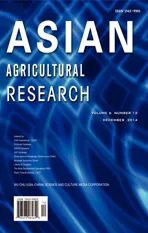How do the Chinese Enterprises Respond to the International Trade Demands for Legal Forest Products?
2014-04-10BinXUShaozhiCHENYanLIJinLI
Bin XU,Shaozhi CHEN,Yan LI,Jin LI
Research Institute of Forestry Policy and Information,Chinese Academy of Forestry,Beijing 100091,China
1 Introduction
In recent years,illegal logging and some issues related to timber trade have caused widespread concern in the international community.In order to combat illegal logging and related trade,the international community has adopted a series of measures,including improving policies of timber producing countries,public procurement policies of forest product consumption countries and regions for timber trade,and developing inter-governmental initiatives and agreements on combating illegal logging and related trade,as well as the timber procurement policies of private sectors(IUCN,2009).To curb illegal logging activities worldwide,the United States introduced Lacey Act Amendment in 2008;European Parliament adopted EU Timber Regulation in 2010;Australia published Illegal Logging Prohibition Regulation in 2012 to prohibit the production of illegal wood products and trade.China’s forest products are mainly exported to Europe and America,and the requirements of timber trade legality must have a far-reaching significant impact on China’s timber industry.To better understand the opportunities and challenges facing China’s forest product companies,it is necessary to be clearly familiar with the foreign trade policies and regulations developed by EU on forest products,strengthen the management of forest product export and legitimate sources of domestic timber,and develop and implement the corresponding policies or measures to protect the vital interests of the foreign trade of China’s forestry enterprises.So there is a need to carry out a survey on the current situation of the Chinese forestry or wood processing enterprises’response to the demand of international legal forest product trade.This study adopted questionnaires,field research and meeting discussion.(i)Questionnaires.A total of210 questionnaires were handed out and 74 valid questionnaires were recovered,of which 49 were for business representatives and 25 for other representatives.Respondents were mainly from export-oriented timber processing enterprises,specifically including 9 lumber enterprises,25 floor enterprises,11 trading companies,2 service companies and 2 wood product enterprises.(ii)Field research.The field research was carried out on a total of10 wood processing enterprises in Guangdong,Zhejiang,Heilongjiang and Beijing.(iii)Meeting discussion.In May 2012,the Chinese Timber Legality Verification Expert Seminar was cosponsored by The Nature Conservancy,to perform the discussion and exchange on how to help the Chinese enterprises to respond to the timber legality requirements of international market.The implementation impact of EU Timber Regulation and other trade regulations has yet not been fully reflected.The survey focuses on understanding the current situation of China’s response to international market legality demand,as well as views of various parties.The survey is mainly for the enterprises,and it also takes into account the views of other important stakeholders such as research and education institutions,industry associations and NGOs.
2 The awareness of the regulations regarding illegal logging
Knowing about the international policies concerning legality or market requirements is the premise of taking reasonable responding measures.Survey shows that various stakeholders’general knowledge of themajor international legal forest product trade policies(such as green procurement policy issued by governments and the EU FLEGT Action Plan)is similar(see Table 1).The results show that,overall,only 7%of the representatives know well about the trade policy about legal and sustainable international forest products;42%of the representatives have the general understanding of the policy;41%of people have heard about it;10%of people do not know the relevant policies.Thus,the current understanding of various parties in China about the international legal forest product trade policy is still very inadequate.

Table 1 The relevant parties’know ledge of legal and sustainable international forest product trade policies
2%of the business representatives know about the relevant policies very well;35%of the business representatives know about the relevant policies in general;50%of the business representatives only heard about it;13%of enterprises do not know the relevant policies(see Table 2).This indicates that the vast majority of Chinese forest product enterprises’understanding of these policies is still very shallow.

Table 2 The enterprises’know ledge of legal and sustainable international forest product trade policies
3 Understanding of the impact of international forest product trade policy on the Chinese forest product trade
3.1 The impact of international forest product trade policy on the Chinese forest product tradeThe actual implementation effect of international forest product trade policy has not been fully reflected,so we only survey the relevant parties’understanding of the impact of these policies on the Chinese forest product trade.Survey shows that most of the representatives believe that the international market demands on legality have a great impact on the Chinese forest product international trade(see Fig.1),and presently the implementation of trade policy concerning legal and sustainable international forest products has affected China’s forest product trade market.
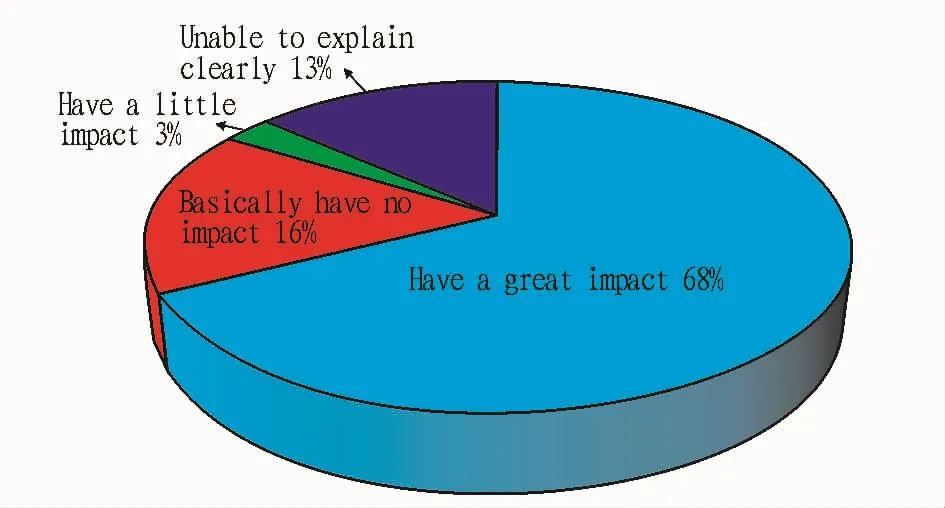
Fig.1 The impact of international legal forest product trade demands on the Chinese forest product trade
3.2 The impact of international legal forest product trade demands on the enterprises surveyedFor the impact of existing international trade market demands on legal forest products on the enterprises surveyed,about more than half of the enterprises surveyed think this impact is small,about one-third of the enterprises think this impact is big,and there are some enterprises which are not clear about the market situation(see Fig.2).This shows that although theEU Timber Regulationhas not been implemented,most enterprises have acknowledged that the legitimacy demand of international markets has varying degrees of impact on the Chinese enterprises,and there are a considerable number of companies having felt the pressures and demands of the market.
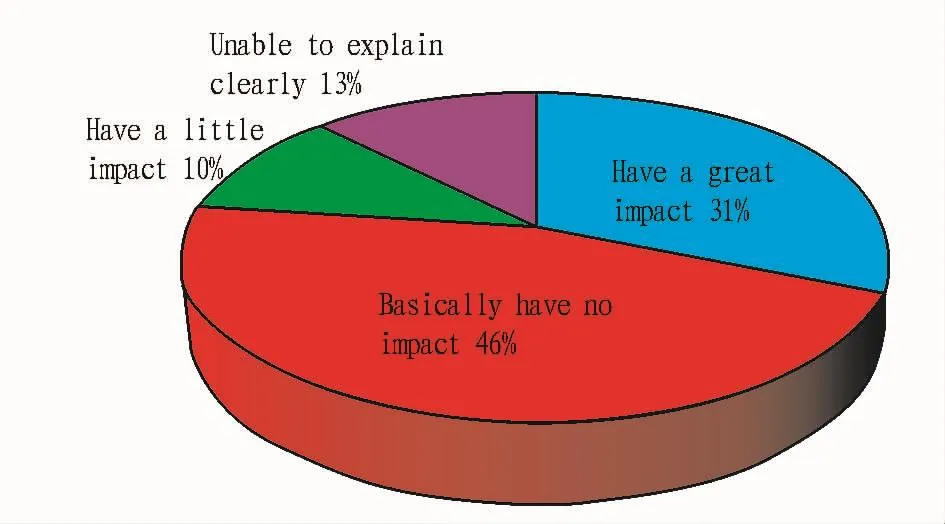
Fig.2 The impact of legal forest product trade demand on the enterprises surveyed
4 Actual international market demand for legal forest products
4.1 The size of the market demandSurvey shows that the majority of business representatives said that the customers have laid legality demands on the Chinese enterprises(see Fig.3).It proves that the international trade market of forest products is affected by the international trade policies on legal and sustainable forest products,and more and more customers have placed related demands on China’s enterprises.With the formal implementation of EU Timber Regulation and Australia Illegal Logging Prohibition Regulation,this trend becomes more apparent.
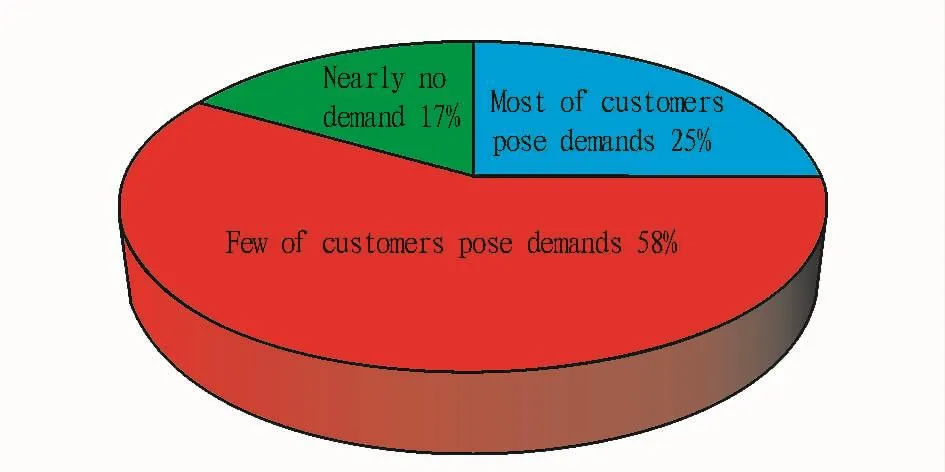
Fig.3 The customers’actual demands for legality on the enterprises surveyed
4.2 The details of Market demandBased on the specific requirements posed by customers on legality or sustainability,most of customers pose the requirements on carrying out the forest certification to prove the legality of timber sources(see Fig.4).Forest certification is not specifically raised for illegal logging,and it is proposed by the NGO,with the aim of promoting sustainable forest management sustainable forest product trade.It contains the demands for legality,so it can be regarded as a tool to cope with the demands for market legality.The custom declaration forms specifically for legality and Due Diligence System(DDS)for timber source legality have been raised by the customers.Of course,these demands are not completely for legal forest product trade,and due to the development of sensitive international markets,the European and American markets have posed the requirements on forest certification.
5 Measures
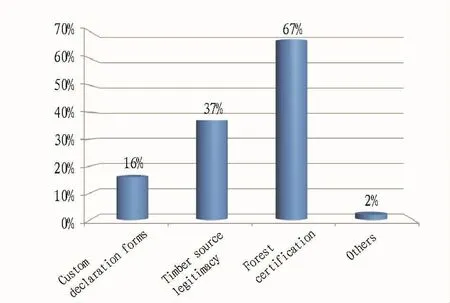
Fig.4 The customers’requirements of legality on the enterprises surveyed
5.1 Measures adoptedSurvey shows that the Chinese enterprises have taken various measures to respond to the international market demands for legality(see Fig.5).(i)Carrying out third party forest certification.63%of respondents choose to carry out third-party forest certification.Forest certification is a sustainability certification,and its standards include environmental,social and economic requirements.From 2010 to June 2013,China’s FSC certified forest area grew from 1.35 million ha to the current 3.13 million ha,an increase of131.5%,and the number of COC increased from 964 to the current 2955,an increase of 206.5%[3],which indirectly proves the role of forest certification in meeting the legality of timber bill.(ii)Developing the green procurement policies.According to the international market demand,29%of enterprises surveyed develop the green procurement policy to purchase certified legal timber raw materials.(iii)Establishing the timber supply chain management system.27%of enterprises establish the wood supply chain management system to track the timber sources,conduct risk assessment on legality of timber source and timely adjust supply chain.From 2008 to 2012,the logs imported from Russia declined from 18.66 million m3to 11.18million m3,a decrease of 40%,and the logs imported from Malaysia declined from 0.82million m3to0.44million m3,a decrease of 46%;by contrast,the log import from New Zealand,the United States,Canada and Australia increased by 354%,815%,1084%and 185%,respectively[3].The adjustment of China’s timber import structure reflects the impact of international legal trade regulations on the Chinese timber supply chain.(iv)Carrying out the timber legality verification.There are many certification bodies in the market which independently carry out the legitimate source verification and legality verification,such as Rainforest Alliance,SGS Company and BV.They develop the timber legality standards and provide related services for enterprises.14%of enterprises surveyed are involved in the timber legality verification project.(v)Participating in the NGO initiatives.NGO has launched a number of initiatives to prevent and combat illegal logging,for example,World Wildlife Fund(WWF)establishes Global Forest and Trade Network(GFTN),and The Forest Trust in the UK requires its members to carry out responsible procurement and provides training and auditing services.8%of enterprises choose to participate in such initiatives,and the support of NGO can help to enhance the enterprises’environmental protection image.In addition,16%of enterprises have notany measure to respond to the international market’s legality requirements.It indicates that some of the Chinese enterprises have adopted a lot of ways to cope with the international market requirements relating to legitimacy,and the inconsistent international market requirements of legitimacy increase the responding cost and difficulty for the enterprises.
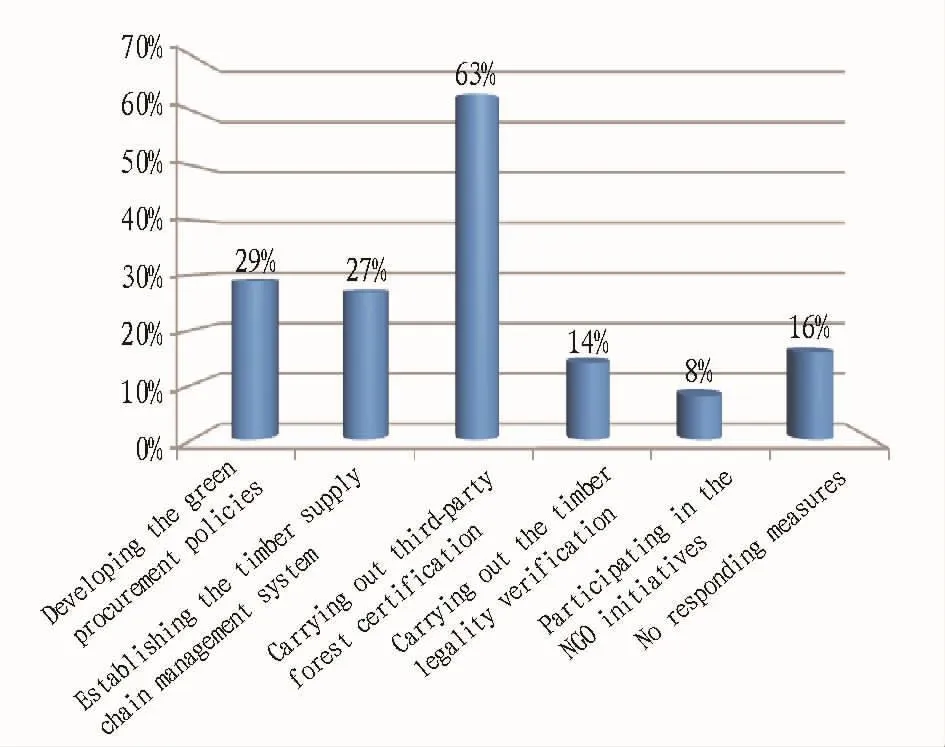
Fig.5 The measures adopted by the Chinese enterprises to respond to the international market legality demands
5.2 Measures to be takenThe survey shows that49%of enterprises tend to choose to carry out third-party forest certification;45%of enterprises tend to choose to build timber supply chain management system;35%of enterprises tend to choose the specified green procurement policy;16%of enterprises choose to participate in the timber legality verification project;14%of enterprises choose to participate in NGO’s initiatives;8%of enterprises do not take any responding measure(see Fig.6).Conspicuously,in face of the international market legality demands,the Chinese enterprises tend to carry out third-party forest certification and choose to build timber supply chain management system.The development of forest certification has been more mature,and the timber supply chain management is the prerequisite and basis for all tools.
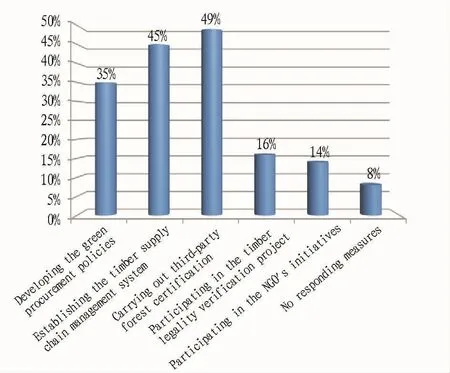
Fig.6 The measures to be taken by the Chinese enterprises to respond to the international market legality demands
6 Challenges
The challenges facing the enterprises when meeting the international market’s legality demands include the following aspects.(i)From the perspective of policy,the enterprises do not know the requirements of international market,the requirements of international market policy are not clear,and the policy implementation of EU and various countries is inconsistent.(ii)From the perspective of practice,the enterprises do not know how to meet international market demands,the legality evidence is difficult to collect,and the supply chain management is complex.(iii)From the perspective of capacity,the enterprises’awareness is weak,and their capacity is not enough,lacking related technology support.(iv)From the perspective of costs and benefits,the market support for legal products is insufficient,and the cost is too high,increasing the unfair competition between legal and illegal products.The survey shows that the majority of representatives believe that the supply chain faced by the Chinese enterprises is complex and it is difficult to realize the timber traceability;half of representatives maintain that the costs are too high for the enterprises to carry outwork with the purpose of meeting legality demands;some representatives do not know the international market’s relevant requirements on legality.It reflects that the enterprises will face difficulties and challenges in face of the international market legality demands(see Fig.7).
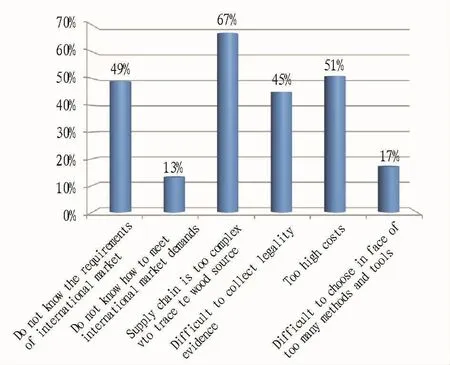
Fig.7 The challenges facing the enterprises when meeting the international market’s legality demands
7 Policy recommendations
The policy recommendations proposed by various parties on how to help enterprises to cope with the international market’s legality demands(see Fig.8).
7.1 Promoting China’s national forest certification system to w in international market recognitionChina has established the national forest certification system,and currently the American and European trade regulations on legal forest products have objectively promoted the development of forest certification.China should seize this opportunity to promote China’s forest certification system in the world,so that the national system wins the recognition of EU governments and market.At present,China’s national system is seeking the recognition of Programmme for the Endorsement of Forest Certification Schemes(PEFC),which provides an way for China’s national system to enter into the international market.
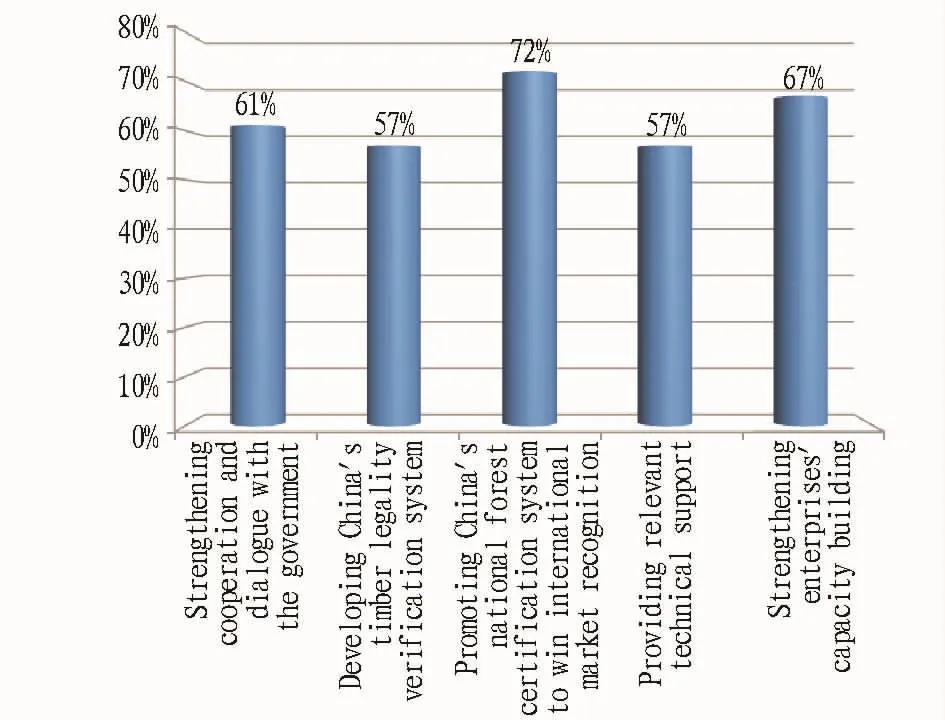
Fig.8 The policy recommendations for helping enterprises to cope with the international market’s legality demands
7.2 Strengthening enterprises’capacity buildingAccording to international market demand,the Chinese enterprises should strengthen their own capacity building.They should know the relevant trade regulations,develop forest procurement policies,establish the wood tracing system and responsibility investigation system,strengthen the timber supply chain management,and select the necessary coping tools in accordance with specific international market requirements.
7.3 Strengthening cooperation and dialogue with the governmentFor the trade regulations on timber legality introduced by major trading nations,China should sign a bilateral memorandum of cooperation or consolidate the existing bilateral mechanisms for cooperation to actively carry out negotiations,eliminate the irrational factors in the trade policy,improve the recognition of China’s policies and measures,and create a favorable international environment for the normal development of China’s timber trade.
7.4 Developing China’s timber legality verification systemHow to identify the legal and illegal timber is the key to solving the problem of illegal logging and related trade.It is necessary to strengthen the timber legality assessment and certification work,actively promote the timber source certification,timber tracking and supply chain management.Internationally speaking,the legality of forest products needs the third-party verification or enterprises’on-the-spot verification,to improve its credibility,so it is necessary to develop China’s timber legality verification system based on international requirements,and improve the credibility of the Chinese forest product legality.
7.5 Providing relevant technical support for the enterprisesFor the current difficulties that arise in the process of meeting international market legality demands,the research institutes should strengthen enterprise supply chain management and tracking technology research and development,make simple and operable technical guidelines,develop the guidelines for legal timber procurement from various countries on the basis of analyzing the laws and regulations on timber production,transportation and processing in various countries,and provide technical and advisory services to the enterprises to help them to meet the requirements of the international market.
8 Conclusions
(i)The Chinese enterprises have known something about the international market trade policy demands for legality or sustainability,and the vast majority of enterprises believe that these trade regulations on legality will have a great impact on China’s forest product trade,but the specific impact has not been fully demonstrated.(ii)Currently,some customers of China’s forest product enterprises have raised the requirements on legality or sustainability of forest products.According to market requirement differences,some enterprises have taken a number of measures,including carrying out third-party forest certification,developing the green procurement policies,establishing the timber supply chain management system,carrying out the timber legality verification and participating in the NGO initiatives.(iii)Currently,there have been many difficulties and challenges faced by the Chinese enterprises when meeting the international market legality demands.The supply chain management is complex;the legality evidence is difficult to collect;the market support for legal products is insufficient,and the cost is too high;the enterprises do not know the requirements of international market,the requirements of international market policy are not clear;the enterprises’awareness is weak,and their capacity is not enough.It is necessary to provide support from policy,technology,management and capacity building.
[1]IUCN.Forest law,administration tactics and trade bulletin aswellas related materials assembly[N].2009.(in Chinese).
[2]CHEN Y,et al.China’s timber legality verification system[R].Project Report of Chinese and British Joint Projects,2011.(in Chinese).
[3]Research Teams of Major Forestry Problems and Policies Study--On Illegal Logging Strategies.Research on the law of timber illegal logging and associated trade:Chinese counter measures and actions[R].Research Report,2012.(in Chinese).
杂志排行
Asian Agricultural Research的其它文章
- Evaluation of Grow th of Agricultural Listed Companies Based on AHP Weighting Method
- Studies on the Development of Walnut Industry in Shangluo City Based on SWOT
- Land Use Conflict Changes and Driving Forces of Beibu Gulf Economic Zone
- Research on the Grain Producers around the Year of Chinese Population Peak
- The Curriculum System Development of Sightseeing Agriculture Major Based on Work Flow
- Analysis of Social Capital's Effect on Income of Poor Households:A Case Study in Sichuan Province
